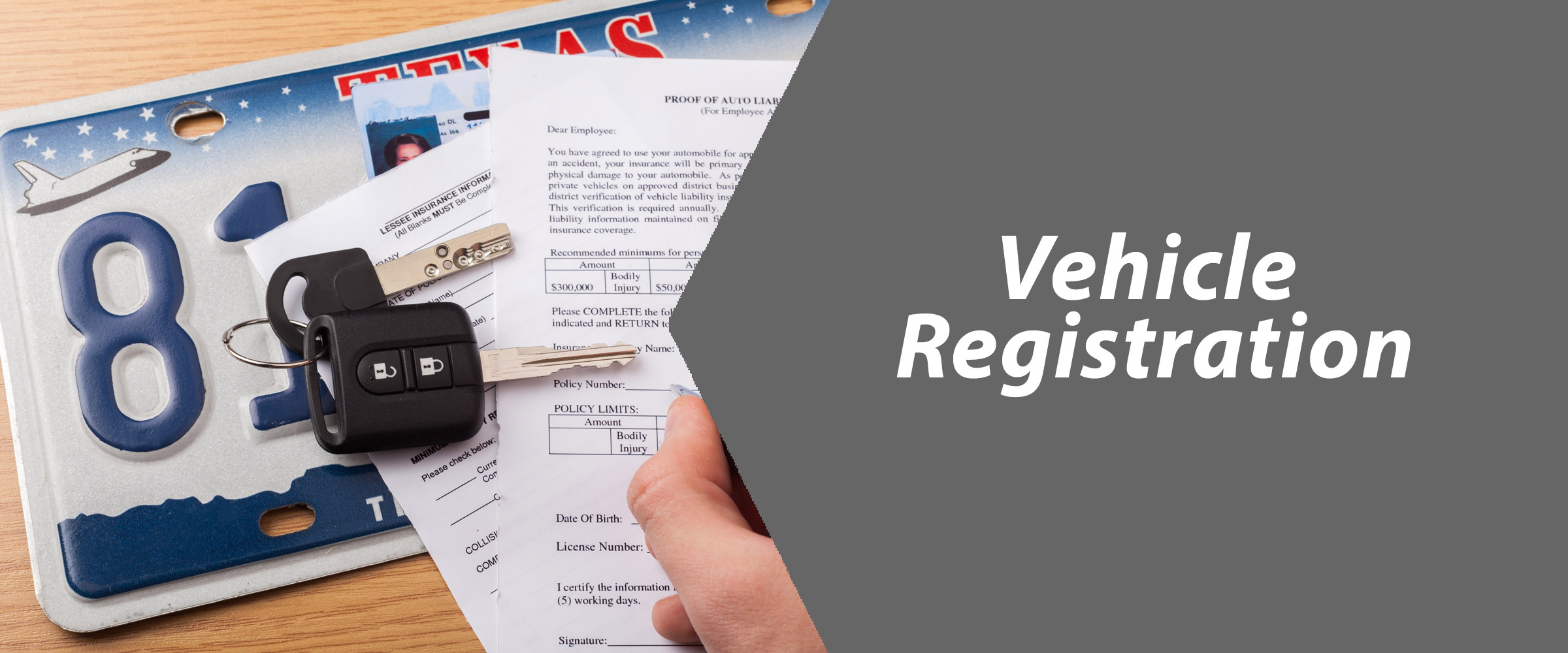Vehicle Registration

/ 5 Stars read 2 min
When you buy a vehicle from a private seller, you must register and title it. To register your vehicle, you will need to visit your local DMV before driving it legally on the road. Before you can legally operate a vehicle on public streets or highways, it is crucial to complete this essential step. Failure to do so may result in various penalties in your state.
Where to Get a Vehicle Registration Near Me?
What is the Requirement to Register a Vehicle?
The process to get registration and title for a vehicle varies across different states. However, there are some fundamental similarities that every driver should follow to ensure compliance with local laws.
Vehicle Registration & Title Process
The registration and titling process for vehicles is generally similar across states. It involves completing an application form, getting a bill of sale, and submitting the necessary documents. It is important to note that most DMV will issue a new car title, which you can then submit to register your new car.
It is also essential to keep in mind that most DMVs have a set amount of time available that you must complete this process after purchasing a new or used car. Otherwise, you may receive a penalty before you can continue the process. If you are applying for a motor vehicle registration & title, you will generally need to complete several basic steps, including:
- Visit your local DMV in person to submit the required paperwork.
- Provide all completed documents, including your application form, the bill of sale (if required), and any other applicable documents (these may vary by state).
- Provide proof of insurance (if applicable).
- Present proof of identity (driver’s license, learner’s permit, state I.D. card)
- Complete payment for all applicable fees
Although this list is not exhaustive, each US state follows a similar process for obtaining a title and registration for your new car. Additional requirements may vary depending on your state and county of registration.
New Residents
Moving to a new city or neighborhood can be an exciting but daunting experience for new residents. From finding a new home to adjusting to unfamiliar surroundings, there can be a lot to take in. However, the excitement of exploring a new area, meeting new people, and building a new life can be invigorating.
For new residents, it is important to take the time to explore the local community and discover all that it has to offer. It is recommended the first step is to complete the registration & title process promptly to transfer your vehicle to the new state. Each state has specific guidelines that must be followed.
- Certain states require an emissions inspection before receiving a title and registration.
- Although the process varies, most states require that you complete the title and registration process in person.
Conclusion:
In conclusion, vehicle registration is essential for any driver in the United States. It highlights the importance of registering your vehicles and adhering to both federal and local regulations. With this knowledge, you’ll be able to make smarter decisions. When it comes to vehicle registration, even pass some knowledge on to friends or family.



